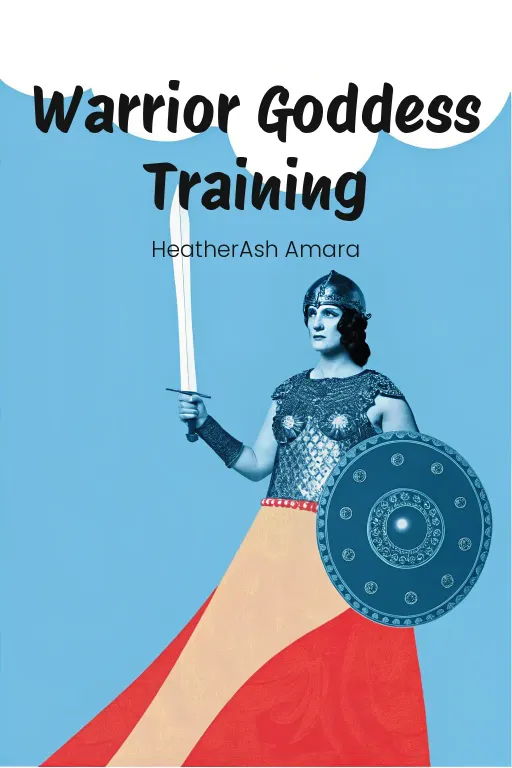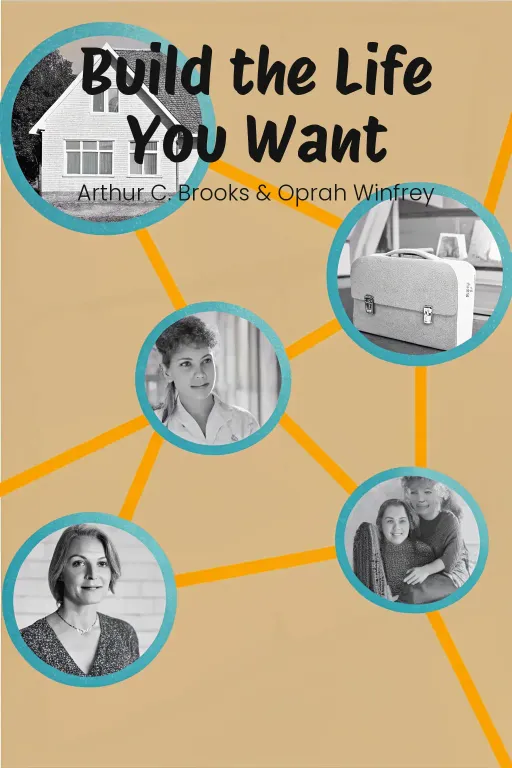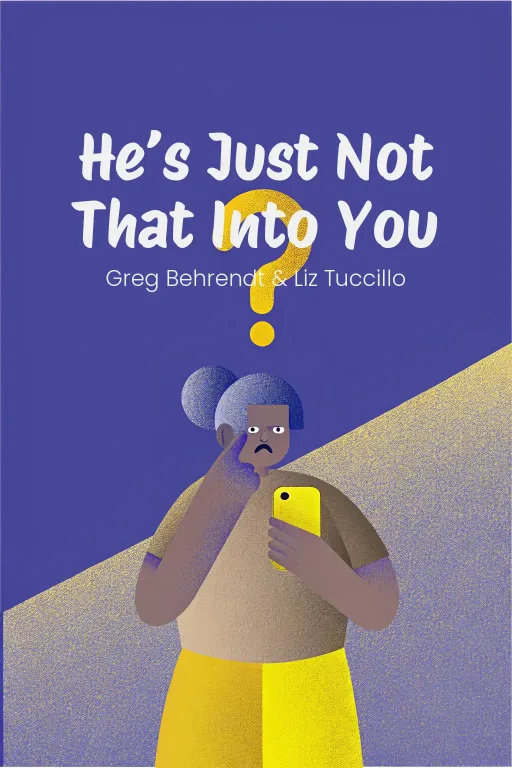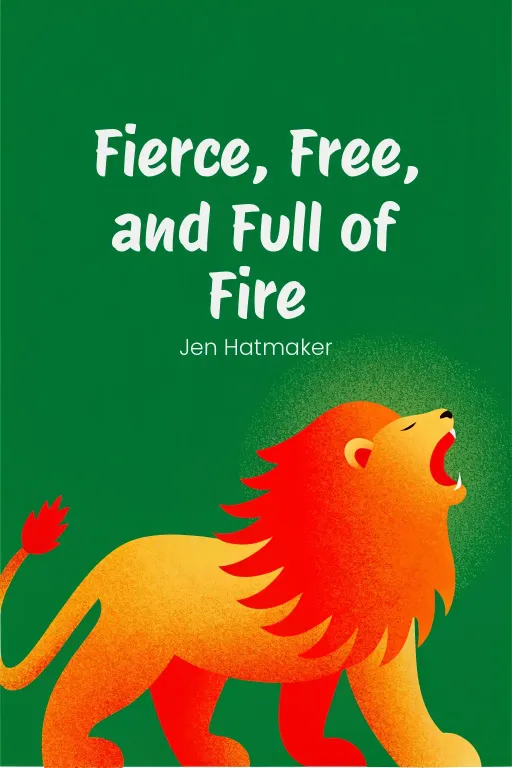
Attract Love: Be Authentic, Confident You
Podcast by The Mindful Minute with Autumn and Rachel
Winning the Heart of the Woman of Your Dreams
Introduction
Part 1
Autumn: Hey everyone, welcome! Today we're diving into a really interesting framework for success in dating and relationships: Corey Wayne's "How to Be a 3% Man." If you've ever felt lost trying to understand attraction or found yourself repeating the same mistakes, this book claims to offer a path to change all that. Rachel: A path, huh? So, is this like a detailed instruction manual, or more like one of those self-help books that promise the world but deliver an atlas? Autumn: Well, not exactly, Rachel. I see it as more of a deep dive into confidence and understanding emotions. Wayne's idea is that only 3% of men genuinely "get it" when it comes to relationships – they truly understand attraction, how to communicate, and the importance of being genuine. Rachel: So, the other 97% are just stumbling around, sending late-night texts hoping for a reply, and wondering why they're still single? Autumn: In a way, yes. And that's where this book comes in. It's about developing yourself into someone who can naturally build trust and real connections – without using tricks or being fake. Rachel: Okay, I'm listening. What's the main strategy here? Autumn: We're going to break down the key ingredients by looking at five main areas. First, we'll set the stage with the fundamentals of relationships. Then, we'll look at how attraction works – how balancing masculine and feminine energies creates that spark. Rachel: Hold on, are we about to oversimplify relationships by reducing them to gender stereotypes? Autumn: Just hear me out on this one. After that, we'll cover communication, which is “really” the foundation of any strong connection. Then, we'll move onto how to maintain a relationship long-term. And finally, we'll discuss personal growth, which “really” supports everything else. Rachel: So, we're going from making beginner mistakes to achieving expert-level skills – all in one go? Autumn: That's the goal! Let's get into what it “really” means to become a 3% Man.
Understanding the Basics of Relationships
Part 2
Autumn: Okay, so let's dive into the basic principles of relationships, right? This is the core foundation Corey Wayne lays out – the core philosophy that anchors everything else in the book. He basically argues that successful relationships hinge on self-awareness, emotional intelligence, and understanding the dynamic between masculine and feminine energies. Without those, attraction fades, the connection just fizzles out, and everything just falls apart under the pressure of misunderstandings or insecurities. Rachel: Okay, hang on. Saying "foundation" kind of sounds like one of those vague, inspirational quotes you'd see plastered on a motivational poster, you know, with a sunset? What are we actually talking about here, in practical terms? Autumn: Well, think of it this way: Wayne's central message is that relationships are a reflection of what's going on inside you. If you're constantly anxious, insecure, or always needing reassurance, guess what? That negativity seeps into the relationship, creating all sorts of unnecessary friction, or even pushing the other person away. The "3% man," on the other hand, knows himself – his values, his fears, his strengths – and acts from a place of genuine confidence. Rachel: So, step one in mastering relationships is basically... getting your own act together first? Autumn: Exactly! He's basically saying that you can't really fully show up for someone else until you've shown up for yourself. One of his examples is the guy who's constantly seeking approval from his partner because, deep down, he doesn't really feel good enough. What happens? That neediness becomes draining for the other person, and ultimately, it sabotages the whole thing. Rachel: Because instead of being sexy and mysterious, he's, you know, like Netflix on a really bad internet connection – just buffering, buffering, buffering all the time. Autumn: Perfect metaphor! The 3% man is the complete opposite. He's calm, he's steady, and secure in his own worth. And that creates an attractive energy – in both romantic relationships, and even social situations. People are just drawn to that stability. Rachel: So he's basically the guy who doesn't even flinch when someone spills coffee on him, whereas the rest of us are hysterically dabbing napkins and apologizing to absolutely no one? Autumn: Pretty much! But that kind of reaction comes from real inner work. Wayne stresses that men need tools for self-improvement, starting with self-awareness. He recommends journaling as a way to track your feelings, your reactions, and even your blind spots. It's about recognizing those patterns – like, if rejection constantly triggers you, you need to dig into why instead of just avoiding it. Rachel: So, the answer to the question, "Why am I still single?" is literally… homework? Autumn: In a way, yes. But Wayne frames it less like punishment and more like it's a way to actually free yourself from insecurities. He believes that once you identify the fears that have been holding you back – like the fear of failure, or the fear of rejection – you can actually face them, and grow beyond them. Otherwise, they'll keep running the whole show, whether you even realize it or not. Rachel: And the one driving the “show” usually hits every pothole on the road. Got it. What about that whole goal-setting thing he talks about? Autumn: That's the next layer of self-improvement. Wayne encourages men to clearly define their purpose and actively work toward it. A guy who is goal-oriented – whether he's building his career, staying fit, or pursuing a passion – just naturally radiates confidence. He's not sitting around, waiting for his life to happen – he's actually in charge of it. Rachel: So, it's more than just having ambitions – it's about actually doing something about them? Autumn: Exactly! He even suggests asking yourself questions like, "What's my mission in life? What kind of man do I want to be?" These aren't just abstract thoughts. They're practical because, once you actually know your purpose, it acts like a compass for every single action. And that kind of authenticity is the very thing that relationships ultimately thrive on. Rachel: Okay, hold up. Is there a danger of all this becoming too performative? Could guys start treating this as a checklist just to impress women, rather than actually trying to be better people? Autumn: That's a totally fair point, and Wayne actually addresses it. He argues that the goal isn't just to impress anyone – it's to build the kind of life you actually want, and become the best version of yourself for you. When you do that authentically, people will naturally be drawn to you, but that would be more like a side effect, not the main goal. Rachel: So, the idea is, you're not reinventing yourself just to get a date; you're evolving because that's what makes your life more fulfilling, end of story. Autumn: Exactly. And that leads right into emotional intelligence – which is another really important component here. Wayne makes a really strong case for this being one of the most attractive qualities a man can have. Emotional intelligence isn't just about understanding what you're feeling; it's also about being attuned to others – like noticing when someone is upset, and responding empathetically, instead of just brushing it off. Rachel: Right, so it's not just, "I heard what you said," but also, "I understand what you meant." Autumn: Exactly. For example, if your partner seems off during a conversation, you could gently say, "You seem a little bothered – is everything okay?" That shows that you're present and engaged, which ultimately builds intimacy and trust. Rachel: Okay, but here's a curveball. What about those moments when someone's "off" because they're testing you? Doesn't Wayne mention that whole thing about “women test men because they want to feel secure”? Autumn: He does, and emotional intelligence is actually key to handling those situations with grace. Wayne suggests not taking the "test" personally – it's not really about you passing or failing; it's about showing that you can stay calm and grounded. Think about a woman questioning your intentions. A 3% man won't get defensive or reactive. Instead, he'll meet her doubt with patience, and maybe even a little humor, which is reassuring on an emotional level. Rachel: So instead of being like, "How dare you doubt my flawless character?" the 3% guy calmly says, "Well, I am bad at Monopoly, but I'm consistently great!" Autumn: <Laughs> Now you're getting it! That kind of response shows confidence without arrogance, and keeps the conversation playful, rather than combative. Rachel: I see the logic. It's less about dodging drama, and more about defusing tension by showing you're secure in yourself. Autumn: Precisely. All of these foundational pieces – self-awareness, goal-setting, emotional intelligence – they connect back to the idea of the 3% man as someone who operates from an authentic place. When men truly embrace this philosophy, they're not only more attractive – they're better equipped to navigate the complexities of relationships. Rachel: Fair enough. If relationships are like puzzles, then this feels like... a pretty solid strategy for solving them without just flipping the whole table over in frustration.
Dynamics of Attraction and Energy
Part 3
Autumn: So, with those foundational principles in place, let's dive into how they actually play out in attraction and energy. We're moving from the theory to the practical side of things, and naturally, that leads us to communication in relationships. Rachel: “Dynamics and energy”? Sounds like a pop quiz! Should I sharpen my pencil? Autumn: <Laughs> No need! We're really talking about understanding how masculine and feminine energies interact to create genuine chemistry. It's about how attraction thrives on balance, confidence, and, well, the dance of pursuit. Rachel: So we’re talking about the x-factor, that invisible something that makes someone think, “Wow, interesting!” instead of, “Nope, gotta go!” Autumn: Precisely! Let's start with masculine and feminine energies. The book suggests that attraction is rooted in polarity—this natural push and pull between opposing but complementary energies. Masculine energy is often tied to qualities like decisiveness, stability, and a clear purpose, while feminine energy is more about expressiveness, creativity, and emotional fluidity. Rachel: So relationships are like a magnet—opposites attract? Is this why my “strong, silent type” phase didn't work when I dated someone equally introverted? Autumn: More or less, yes. Wayne emphasizes that polarity is key. If both partners lean too far in the same energetic direction, the relationship can feel a bit… flat. Imagine two very controlling or two very passive people together—there's no spark, no dynamic. But when partners embrace their respective strengths, the connection becomes much richer and more attractive. Rachel: Okay, but what does “embracing strengths” actually look like in real life? Give me an example. Autumn: Sure! Think about a man who walks into a room with a calm, self-assured demeanor. That quiet confidence radiates what we call masculine energy, which naturally draws the attention of women who are more in tune with their feminine energy. They might feel drawn to his stability—it creates a sense of security and, frankly, intrigue. Rachel: So, he's not fidgeting, shouting to be heard, or scanning the room like he's lost his keys? Autumn: Exactly! And within a relationship, a man embracing his masculine energy might make confident but thoughtful decisions—like planning a date where he takes the initiative. Perhaps he picks a restaurant or suggests an activity without agonizing over every detail. Meanwhile, the woman feels more comfortable relaxing into her feminine energy—she doesn't feel the need to take charge of every logistical or emotional detail. Rachel: So, the guy is the anchor, and the woman is free to sail because of the stability he provides? Autumn: I like that analogy! But it's not just about stability, it's about making space for interplay. If masculine energy brings decisiveness, the feminine energy can complement it with spontaneity and creativity. When both energies are balanced, the relationship feels dynamic, not one-sided or forced. Rachel: Ok, that's the ideal: balance. But relationships aren't always smooth sailing. How do you maintain polarity when life throws you a curveball? What happens when one person starts to veer too far to the other side? Autumn: That's an excellent question. Relationships can stagnate or lack spark when people lose touch with their core energies. For example, if a man becomes overly passive or indecisive, it can create a vacuum, and the woman might feel pressured to step into his role. That kind of imbalance can definitely erode attraction over time. Rachel: Right, so instead of polarity, you get tension - and not the good kind. Autumn: Precisely. Wayne suggests that maintaining polarity takes conscious effort. For men, it means consistently showing up with a sense of direction and remaining grounded, especially during tough times. It's not about being domineering, it's about offering emotional security that allows the feminine energy to flourish. Rachel: Got it. Be dependable, not a doormat. But what about the pursuit? Wayne seems to suggest that the “thrill of the chase” is a real thing for women. Isn't that more about game-playing than genuine connection? Autumn: It's more nuanced than just playing games. Women are naturally drawn to effort—it taps into a deep-seated pattern where mutual investment builds engagement. But Wayne warns against overwhelming someone with excessive attention. Attraction wanes when there's no room for curiosity or excitement to develop. Rachel: So, rather than showing all your cards immediately, you hold back just enough to keep things intriguing? Autumn: Exactly. Imagine a man exuding confidence as he approaches a group of women at a party. Instead of trying to dominate the conversation, he makes a playful comment—something light, like, “Hope you're all keeping the karaoke classics alive tonight!”—and then moves on. Rachel: So, he's creating a moment, not trying to perform a three-act play on the spot. Autumn: Exactly. That's the art of pursuit—it's about creating opportunities for interaction without overloading the other person. Later on, if those women see him elsewhere at the party, relaxed and engaging with others, they're likely to wonder about him, sparking their curiosity. Rachel: And suddenly, you're the mysterious karaoke king everyone wants to know. Autumn: Exactly. Wayne's point is that a bit of mystery enhances attraction. It's not about hiding who you are, just about letting the other person discover layers naturally instead of bombarding them with everything upfront. Rachel: Okay, let's address the elephant in the room—confidence. None of this works if the guy's secretly panicking inside, right? Autumn: Definitely not. Confidence is the cornerstone here. And Wayne emphasizes that real confidence isn't about showing off, it's about being comfortable in your own skin. A man who is actively working towards his goals, living according to his values, and facing his fears becomes someone who doesn't need external validation. Rachel: So, he's not just faking it 'til he makes it—he's actually becoming it. Autumn: Precisely! Wayne uses a brilliant analogy: he compares confident interaction to playing with a cat. If you constantly chase the cat, it runs away. But if you're calm and patient, the cat eventually becomes curious and approaches you willingly. Rachel: So, it's the “nice guy” with patience, not someone desperately waving a laser pointer, hoping something happens. Autumn: Exactly. And patience links back to emotional self-reliance. Wayne gives an example of a man interacting with a woman who was emotionally unpredictable—playful one moment, distant the next. Instead of getting flustered or trying to “fix” her mood, he simply stayed grounded. That steadiness made her feel secure and, ultimately, more drawn to him. Rachel: Alright, I see the appeal. It's less about controlling someone else's energy and more about being solid in your own, which naturally brings things into balance. Autumn: That's it in a nutshell. Confidence, balanced pursuit, and embracing the masculine-feminine dynamic—they all work together to create a strong and authentic connection. Rachel: I have to admit, this isn't just relationship advice, it's a life philosophy. Sure, connections get stronger, but it sounds like you also become a stronger person in the process. Autumn: Exactly why Wayne's approach resonates. It's about evolving for the right reasons—not just for relationships, but for your own growth and fulfillment.
Communication and Emotional Intelligence
Part 4
Autumn: Okay, so we’ve talked about energy dynamics. Now, let’s dive into how communication and emotional intelligence really deepen those connections. This is where attraction meets long-term relationship success. We’re talking about the “tools” you need for emotional connection and, you know, resolving conflict. Rachel: So basically, attraction gets you in the door, but communication and emotional intelligence are what stop you from getting tossed out on your ear? Alright, I’m listening. Autumn: Exactly! Communication, according to Corey Wayne, is really the heart of any successful relationship. It’s not just about talking, though. It’s about truly listening, understanding, and responding in a way that builds trust. And a big part of that, especially with women, is understanding their emotional language – how their words, their tone, even their body language often have multiple layers of meaning. Rachel: Oh, boy. The infamous “I’m fine” while simultaneously glaring daggers at a wall. Is there, like, a Rosetta Stone for translating that one? Autumn: <Laughs> Precisely the kind of subtle cue Wayne talks about. He points out that men often struggle because they approach conversations as a problem to be solved, rather than focusing on the emotional connection. Often, women don't expect instant solutions; they want to feel heard and supported first. Rachel: So instead of, say, immediately grabbing your toolbox and saying, "Okay, here's how we “fix” 'fine'," you… what, metaphorically pull up a comfy armchair and just listen? Autumn: That’s pretty much it! Like, in the book, there's an example of a woman venting about a rough day at work. She comes home and says, “My boss totally humiliated me in a meeting today.” A lot of guys might jump straight to solutions – "Well, have you thought about talking to HR?" or "Maybe it's time to update your resume?” Wayne’s advice is to resist that urge and say something like, "Oh no, how did that make you feel?" Or, "Tell me more about what happened." That kind of reflective listening creates a space where she feels safe sharing, without feeling judged or getting unsolicited advice. Rachel: So basically, you're turning into a romantic version of Sherlock Holmes – analyzing all the emotional cues and clues. But playing devil’s advocate here, what about when she “actually” wants advice? How long do you have to just sit there and nod? Autumn: It's a totally valid question. Listening doesn't mean “never” offering solutions. It just means waiting until she's receptive. By reflecting her feelings— "So, you felt really disrespected when your boss called you out like that?" —you show that you actually “get” what she's saying. Once she's processed the emotional stuff, she might naturally ask for your opinion, or you can gently offer suggestions, but the connection has to come first. Rachel: Okay, acknowledge the emotions before pulling out the Gantt chart. But what “is” reflective listening, exactly? It sounds like something you learn in a corporate sensitivity seminar. Autumn: It’s a core skill of emotional intelligence. Wayne emphasizes that one of the most impactful things you can do in a relationship is mirror back what someone shares with you. For instance, if your partner says, “I feel completely overwhelmed right now,” you could respond, “Wow, it sounds like you’re carrying a lot. Do you want to talk about it?” This validates what they're feeling and assures them that you’re paying attention to their emotional state. Rachel: Let me guess – it drastically reduces the chances of them snapping, “You’re not even listening to me!” Autumn: Exactly! And it's a simple tool that prevents misunderstandings. When she feels seen and understood, it strengthens trust. Now, let’s move on to humor, because that’s another critical part of emotional intelligence, according to Wayne. Rachel: Ah, finally! A topic I can grasp. So, the thesis here is: Crack jokes, win hearts? Autumn: Not “exactly.” The book presents humor as a tool for smoothing out tension or emotional spikes. Used well, it can diffuse conflict and keep communication light, particularly when emotions run high. It’s not about dismissing serious issues, but balancing intensity with playfulness. Rachel: Okay, give me a real-life example before I have visions of sitcom laugh tracks playing during heated arguments. Autumn: There’s a story in the book about a coaching client who used humor during a disagreement with his girlfriend. They had butted heads at a work meeting, and that tension followed them home. Instead of letting it turn confrontational, he, you know, eased the tension with a light-hearted remark. Something like, "You know, for someone who's ticked off, you still look pretty cute!" Rachel: And she rolled her eyes but cracked a smile anyway, right? Autumn: Bingo! I see you've been there! The humor shifted the mood from confrontational to more affectionate. It reminded her that they're partners. In essence, humor can signal, "Hey, it's okay, we don't need to take ourselves so seriously “all” the time." Rachel: Okay, humor as a tension reliever. But isn't there a “very” fine line between diffusing and deflecting? What if the playful remark comes off as dismissive? Autumn: Absolutely. Timing, tone, and context are absolutely “everything”. Wayne advises breaking tension “after” acknowledging emotions – not, you know, using humor “instead of” emotional engagement. If your partner is visibly upset and you immediately joke, “Why don’t we just nuke your boss from orbit, it’s the only way to be sure?” it might feel dismissive if she’s still processing. Humor works best when it shows you aren’t thrown off by emotionally charged moments. Rachel: Okay, that makes sense. So, is humor the only way to navigate these emotional "tests," or are there other, you know, Jedi mind tricks in this relationship toolkit? Autumn: Wayne definitely includes it as one tool, but emotional stability is really the cornerstone when navigating what he calls "women's tests." These tests aren't games designed to frustrate you – they're a subconscious way of seeking reassurance. Rachel: So, when she asks, “Are you sure that’s the right way to do it?” it’s not necessarily about second-guessing your decision-making? Autumn: Exactly. It’s often about seeing how secure and confident you are. A guy who responds defensively – "Why do you always doubt me?" – essentially fails by showing a lack of emotional resilience. On the other hand, someone calm and self-assured might smile and say, “Trust me, I’ve got this handled,” easing her doubts without creating a scene. Rachel: So, the goal isn't to "win" the test, but to show that you can deal with it without your ego, you know, collapsing into a pile of rubble. Autumn: Precisely. Responding thoughtfully reassures her while proving you’re emotionally steady. This builds trust – she feels safe expressing insecurities without fearing you’ll overreact. Rachel: Okay, so we’re talking reflective listening, humor, navigating challenges with mindfulness. It all leads back to one central idea, doesn’t it? Emotional intelligence is the glue that keeps relationships together, yeah? Autumn: Absolutely. Wayne’s argument is that emotional intelligence allows you to approach each moment with patience, curiosity, and flexibility. Instead of reacting automatically, you listen and respond with intention. Rachel: And this isn’t just about romantic relationships, right? Emotional intelligence seems like it would apply equally well to friends, family, even, you know, dealing with difficult people at the coffee shop. Autumn: Spot on. It enriches pretty much “any” kind of connection. Whether it's a tough discussion with your boss or, you know, mediating a family squabble, understanding emotions and communicating effectively can transform those interactions. Rachel: So, to recap: Listen first, use humor wisely, and don’t let emotional challenges throw you off your game. Emotional intelligence sounds like a recipe for not just keeping relationships on track, but, you know, generally making life a little bit smoother. Autumn: That’s exactly it. It’s foundational to growth and connection. When you practice these tools, you can show up authentically, both in love and in life.
Building and Sustaining Relationships
Part 5
Autumn: Now that we've talked about building strong communication, let's dive into building and maintaining long-term relationships. This naturally follows from that initial spark to the ongoing effort it takes to keep things exciting and healthy. That's “really” where the magic of a lasting connection happens, you know? Rachel: Ah, so we're leaving the honeymoon phase, huh? And bracing ourselves for the "real work" part of relationships. Instead of fireworks, you're more likely to encounter the occasional "Did you really load the dishwasher like that?" kind of vibe, right? Autumn: <Laughs> You could say that! But Corey Wayne reframes this as an opportunity—a chance to actually deepen your connection, build real trust, and grow together. It's not just about avoiding conflicts or boredom. It's about consciously nurturing the relationship. Rachel: Okay, I'm intrigued! What does "intentionality" even mean in this context? People throw that word around like confetti at a wedding. Autumn: Great question! Wayne breaks it down into four main areas: creating and keeping interest, planning meaningful dates, moving toward exclusivity, and fostering a long-term dynamic of growth, and mutual respect. These aren't just boxes to tick off; they're active ways to keep the relationship emotionally rich and exciting. Rachel: Alright, let's start with keeping the spark alive – interest. What's his big secret to keeping someone engaged for the long haul? Juggling lessons? Magic tricks, maybe? Autumn: <Laughs> Not exactly. It boils down to curiosity and emotional involvement. For example, Wayne emphasizes not revealing your entire life story right away. Keeping a little mystery allows that curiosity to grow. Rachel: Okay, but how does that work in reality? Because the minute someone says, "Don't talk too much about yourself," you imagine these awkward silences. Autumn: Not if you do it well! Wayne illustrates this with an example: A guy hints at a fascinating story without giving away all the details. Like, "I stumbled upon a hidden waterfall on this crazy hike once," and just leaves her wanting to know more. That naturally invites questions and draws her in! Rachel: So, it's like personal branding, but with storytelling. You leave them wanting more. Autumn: Exactly! Bonus points if you follow that up with an open-ended question, like, "What's the coolest adventure you've ever been on?" That kind of playful curiosity keeps the conversation going. Rachel: So, the advice is: Be interesting, and be interested. Makes sense. What about timing? Does that play into the interest game at all? Autumn: Definitely. Wayne strongly advises against over-contacting someone, especially at the beginning. Like, after an amazing date, don't bombard her with texts or call the next morning, asking, "Did you have fun last night?" Give her space to process things and build anticipation. Relationships need rhythm, not constant attention. Rachel: Wait days to text? Isn't that just playing games? Autumn: It's not about playing games, it's about pacing. Wayne uses the analogy of a favorite song. If you play it on repeat, you'll get sick of it, right? Similarly, too much attention, too fast, can overwhelm someone. A little breathing room keeps things fresh and balanced. Rachel: Fair point. Let's talk about dates. Because I can already hear people panicking, worrying about planning the "right" ones. Autumn: Wayne tackles that head-on. He says dates should encourage conversation and create memorable emotional experiences. So, no movie dates early on; they don't allow for real connection. Instead, prioritize coffee, dinners, or even a walk in the park. Those settings encourage dialogue. Rachel: And here I was thinking movies were the go-to, "safe" option. Autumn: They might seem safe, but they're passive. The goal is to engage, find common interests, and build rapport. Even the timing of dates can add intrigue! For example, Wayne suggests keeping weekends open for your own life and planning dates during the week, initially. It kind of flips the script, making weekends something she aspires to, showing her investment. Rachel: So, weekday dates are a subtle power move? Autumn: In a way, yes. And if she eventually asks, "Why don't we ever go out on weekends?" a playful response like, "Earn it, and I'll upgrade you," keeps things light and interesting. Rachel: Okay, I bet this relies on some assertiveness. You can't go soft when someone calls to reschedule last minute, can you? Autumn: Exactly. Assertiveness isn't about being rigid; it's about showing confidence and decisiveness. If she calls a few hours before to change plans, you might say, "That doesn't work for me. Let's stick to the original plan." That shows you're steady, which builds her respect and comfort in you taking the lead. Rachel: Got it. Stand firm on that 7 PM dinner reservation, but don't be a date night dictator. What about exclusivity? When does that come into play? Autumn: Exclusivity is a key turning point, and Wayne suggests letting the woman initiate those conversations. This doesn't mean being passive, but rather, displaying emotional security by trusting the natural flow of the relationship. Rachel: So, instead of blurting out, "What are we?" on date four, you just... wait for her to bring it up? Autumn: Well, it's more about deliberately building the relationship. You continue showing up confidently, sharing enough about yourself to invite deeper connection without losing that bit of mystery. And you maintain balance by pursuing your own goals, instead of focusing solely on her. Rachel: So it sounds like exclusivity isn't just about the labels, but more about a shared understanding, and making room for personal growth on both sides. Autumn: Exactly. A healthy relationship thrives when partners cultivate their individuality while building something together. And once you're exclusive, Wayne stresses the importance of consistent effort – showing care through thoughtful gestures, shared goals, and emotional resilience. Rachel: Like keeping the romance alive beyond the first few months, right? Romantic notes, spontaneous trips – things like that? Autumn: Yes, and also fostering mutual growth. A long-term relationship benefits a lot when the people encourage each other to reach personal milestones, whether fitness, career, or hobbies. It's a way of intertwining your journeys while staying inspired by each other. Rachel: Right. But balancing shared and your own growth without stepping on each other's toes sounds easier said than done. Autumn: It takes self-awareness and patience, which Wayne ties back to emotional resilience. Testing moments are bound to happen, whether it's a sudden conflict or a personal challenge. Ultimately, your ability to stay calm, listen actively, and respond thoughtfully ensures the relationship feels secure, no matter the storm. Rachel: Okay, so the secret recipe for long-term connection is curiosity, care, shared goals, and emotional stability when things get crazy? Autumn: Exactly! It's about intentionally building something vibrant and resilient, where both people feel valued and secure. Building and sustaining relationships goes way beyond initial attraction; it's about evolving together.
Self-Improvement and Personal Growth
Part 6
Autumn: You know, as relationships mature, the focus kind of naturally shifts to self-improvement, personal growth . I mean, you can’t really have a fulfilling partnership if you don't have a solid foundation in yourself first, right? Corey Wayne’s final pillar is all about how that internal growth—the work we do on ourselves—directly impacts our relationships, our external success . It's really a cycle: you grow as a person, your relationships get better, and those better relationships encourage you to grow even more . Rachel: So, if I'm hearing you right, we're closing the loop here . First, we learn to connect with people . Then, we figure out how to communicate and keep a relationship going . And “now”, we're zooming in on, like, "Okay, how do I become the kind of person that someone else even wants to connect with?" Is this when the journaling and those 2 AM existential crises finally pay off? Autumn: <Laughs> Well, funny, and, yeah, in a way, not wrong . One of his biggest points is that authenticity is really key to everything when it comes to relationships . To make real connections—whether it's romance or just friendship—you've got to know yourself first . That means embracing your values, your passions, even the things that make you vulnerable . It's about showing up as you, instead of putting on a show to please everyone else . Rachel: Okay, Autumn, I'm going to push you a bit here . When we throw around "being authentic," are we just talking about, like, knowing your quirks and your favorite kind of pizza? Or is there a deeper level to it—a place we're supposed to get to? Autumn: Oh, for sure, it goes way deeper than pizza preferences . Authenticity means really confronting the parts of yourself you probably avoid—like those insecurities or old wounds . Corey Wayne actually shares his own story about how he didn’t connect authentically in high school and ended up getting rejected . Instead of blaming everyone else, he took a hard look at how his own need for validation was holding him back . Rachel: So, instead of just, you know, shaking his fist at the sky and whining, "Women don't like nice guys," he chose to look inward and, like, grow . Okay, that's…bold . Autumn: Exactly! And he gives some really useful tools for anyone to do the same . Things like journaling, which is like having a conversation with yourself . It helps you see patterns in how you react, what makes you anxious, and where your strengths lie . Then there’s mindfulness—meditation, even just a quick pause during the day to check in with yourself: "What am I feeling right now, and why?" Rachel: So, basically, it’s stopping mid-scroll on TikTok to actually… you know… think about your feelings . Autumn: Yep! And something as simple as a values inventory—listing out the things that really matter to you, like honesty or creativity—helps you make sure you're acting in ways that line up . When you really live authentically, you stop trying to fit into these boxes that society or, even worse, your own insecurities, try to put you in . Rachel: So, I'm guessing that not living authentically is like wearing a really badly tailored suit—uncomfortable and pretty obvious to everyone else? Autumn: Oh, that's a perfect analogy, Rachel . It's exhausting and, frankly, unsustainable . Authenticity, on the other hand, it just feels easy . And it's magnetic, you know? When you're aligned with who you really are, people pick up on that confidence and clarity . Rachel: Alright, let's pivot to insecurity then, because I know Wayne spends a lot of time in the book tackling that one head-on . I imagine this particular topic must hit home for a lot of guys . Autumn: Yeah, it does, and there's a reason for that . Insecurity is such a quiet destroyer—it can just eat away at relationships . Whether it's constantly worrying about being good enough or needing constant reassurance, insecurity can make people overcompensate or just withdraw, and either way, you're pushing people away . Rachel: Here we go, I can feel it… it’s the cat analogy incoming, isn't it? Autumn: It is! Wayne uses cats to explain attraction dynamics so well . If you chase a cat—panicking because it's not coming to you—it's going to run away . But if you're just relaxed, confident, patient, the cat gets curious and comes to you eventually . It’s the same sort of dynamic in relationships . Confidence, self-assurance, that draws people in, while being needy just pushes them away . Rachel: So, you're saying the whole key to building connections isn't becoming some kind of cat whisperer . It’s about not acting like the cat needs, you know, whispering in the first place . Autumn: Right . And he shares a powerful example of this—his own journey of shifting his focus from seeking approval from women to actually working on himself . Simple things like making exercise a priority, getting ahead in his career, finding hobbies he loved, that's what really built his confidence . And as a result, interactions with women felt less like these high-pressure tests and more like… just a natural extension of his life . Rachel: Right, so it's not about proving your worth through hitting some kind of achievement checklist . It's about finding “value” in your own growth . The next question, though, is how do you get there without turning self-improvement into, you know, a competition with yourself? Autumn: And that's where Wayne's strategies come in . Practical things like setting small, achievable goals—learning a new skill, improving at work—those boost your confidence bit by bit . And positive self-talk can be really transformative too . Instead of defaulting to thoughts like, "I'm not good enough," you learn to acknowledge your growth and reframe struggles as just challenges to overcome . Rachel: Sounds like taming that inner critic, which I suspect might be a bit harder than it sounds . It's easy for people to just get stuck in these spirals of self-doubt, right? Autumn: It really is, but Wayne gives you tools for resilience . When you face rejection or failure, you learn to see them as external things, not as permanent failures carved into your self-worth . It's not about never feeling insecure . It's about building the courage to push through it and get stronger . Rachel: I'd say that kind of strength ties in nicely with his ideas about masculine energy, right? Because I was actually surprised to learn that masculinity in this context isn't about, you know, chest-thumping bravado, it's actually far more nuanced . Autumn: It really is . Masculine energy, the way Wayne defines it, is about being centered and purpose-driven . It's like, the calm in the middle of a storm, that steady anchor . A man who embodies this kind of energy creates an environment where people feel safe—emotionally and otherwise . And really, the key is to actively cultivate that steadiness, even in very emotionally charged situations . Rachel: Like when your partner's venting about a bad day at work, and instead of trying to fix everything for them, you just…listen . Simple, reliable, steady . Autumn: Exactly! And it plays out in how you handle arguments too . He gives the example of a guy who remained calm when his girlfriend criticized him out of frustration . Instead of getting angry in return, he calmly reassured her, and let her vent without escalating the situation . Rachel: So, grounding yourself isn't about bottling everything up, it's about staying clear-headed enough not to let your emotions run wild . Autumn: Absolutely . And grounding practices, like setting goals, regulating your emotions through mindfulness, or even embracing playful leadership in the relationship, those reinforce that sense of purpose and stability . Rachel: So, let me guess here—these traits are all incredibly attractive because they basically scream, "Hey, I've got my act together"? Autumn: Bingo . Masculine energy attracts complementary feminine energy because it provides that emotional security and direction . But it goes both ways, you know? The relationship thrives when there's a balance between providing stability and embracing the spontaneity and creativity that feminine energy brings to the table . Rachel: Which brings us full circle, right? Self-improvement isn't just about becoming "better" for someone else . It's about growing into the best version of yourself, so that every relationship you enter—romantic or not—gets the authentic, unfiltered you . Autumn: Right! And as Wayne argues, when you're grounded in confidence, authenticity, and purpose, the relationships you build are going to reflect all of that growth . The internal work really creates a ripple effect of connection and fulfillment .
Conclusion
Part 7
Autumn: Okay, Rachel, I think we’ve “really” unpacked this whole 3% concept. You know, from building self-awareness and emotional intelligence, right through to understanding attraction and how to make relationships last, Wayne’s method is “really” about changing yourself from the inside. Rachel: So, let me see if I got this straight: be confident, don’t be too clingy, actually listen to what people say, keep your cool when things get tough, and maybe, just maybe, learn a thing or two from cats. Sounds...easy? I mean, is it “really” that straightforward? Autumn: Well, the idea is easy to grasp, but it definitely takes some work to actually do it. It’s not about using tricks or pretending to be someone you’re not. It’s about being genuinely yourself and always trying to improve. When you focus on yourself, you not only find better relationships, but you also create a better life for yourself, period. Rachel: So, the ultimate lesson is: try to be like a cat that owns the place... and maybe, just maybe, stop chasing every shiny object. Autumn: Exactly—or even better, become the kind of person who brightens up a room without needing anyone else to clap for you. Whether you're aiming for "the 3%" or simply just a happier, more stable person, it's all about making progress—not about being flawless. Rachel: Okay, I like that. So, here's to joining "the 3%"—or at least inching our way closer to it after this chat. Autumn: Go out there and focus on your self-development, one baby step at a time. Thanks for listening, and until we meet again, stay true to yourself and keep growing.









